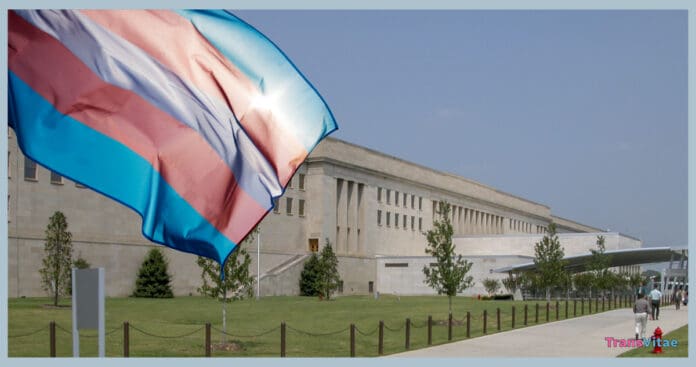The Department of Defense will resume providing gender-affirming care for transgender service members and their dependents, reversing a core component of the Trump administration’s efforts to exclude transgender individuals from military service.
A Pentagon memo, signed by Acting Assistant Secretary of Defense for Health Affairs Stephen Ferrara and obtained Thursday, confirms that military medical treatment facilities will restore access to surgical procedures, hormone therapy, voice therapy, and mental health services for individuals diagnosed with gender dysphoria. The policy also reinstates previously paused waivers under the Supplemental Health Care Program (SHCP), allowing transgender troops to receive treatment from civilian providers.
“Service members and all other covered beneficiaries 19 years of age or older may receive appropriate care for their diagnosis,” Ferrara wrote. “This includes mental health care and counseling and newly initiated or ongoing cross-sex hormone therapy.”
The memo comes in response to a series of legal defeats for the administration, which had moved swiftly in January to reinstate its earlier ban on transgender service members. That policy, modeled on Trump’s first-term restrictions, sought to bar new enlistments and remove current personnel diagnosed with gender dysphoria, unless they had never transitioned or taken steps toward gender-affirming care.
On March 27, a federal judge in Washington state temporarily blocked the policy from taking effect. Two additional federal judges issued similar rulings last month, including U.S. District Judge Ana Reyes of Washington, D.C., who stated the administration’s ban was “soaked in animus.” The Justice Department has since appealed the rulings and asked the Supreme Court to allow the ban to proceed while litigation is ongoing.
Despite the administration’s insistence that the ban is essential for “military readiness and lethality,” judges across the country have pushed back, demanding evidence to support that claim. Judge Benjamin Settle of Washington state, appointed by former President George W. Bush, noted pointedly, “The government’s arguments are not persuasive, and it is not an especially close question on this record.”
The decision to reinstate care is a deeply personal victory for many transgender troops and their families, who have spent months in limbo. For many, the stakes are more than political—they are about dignity, identity, and the ability to serve authentically.
Yet resistance remains. Defense Secretary Pete Hegseth, a Trump appointee, has leaned heavily into culture war rhetoric, declaring in a recent speech at the Army War College that there will be “no more gender confusion, no more pronouns, no more excuses” in the military. His comments have drawn sharp criticism from LGBTQ+ advocacy organizations and veterans’ groups, who accuse the administration of turning transgender service members into political pawns.
In court, attorneys representing transgender plaintiffs argue that the ban serves no rational purpose. Shannon Minter, lead counsel for a group of affected service members, put it bluntly: “We don’t talk about people with diabetes or heart conditions being dishonest or undisciplined. The only thing this ban does is exclude people who have already proven they can do the job.”
The Supreme Court has asked plaintiffs to respond to the administration’s emergency motion by May 1, setting up what could be a defining moment in the legal battle over transgender military rights.
For now, transgender troops can access the care they were promised under the Biden-era policy, an acknowledgment, at least temporarily, that their service and identities are valid.
And for those who continue to wear the uniform while fighting for recognition, today’s reversal is more than a policy; it’s a lifeline.


